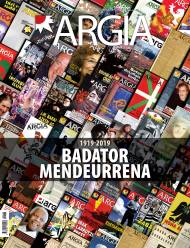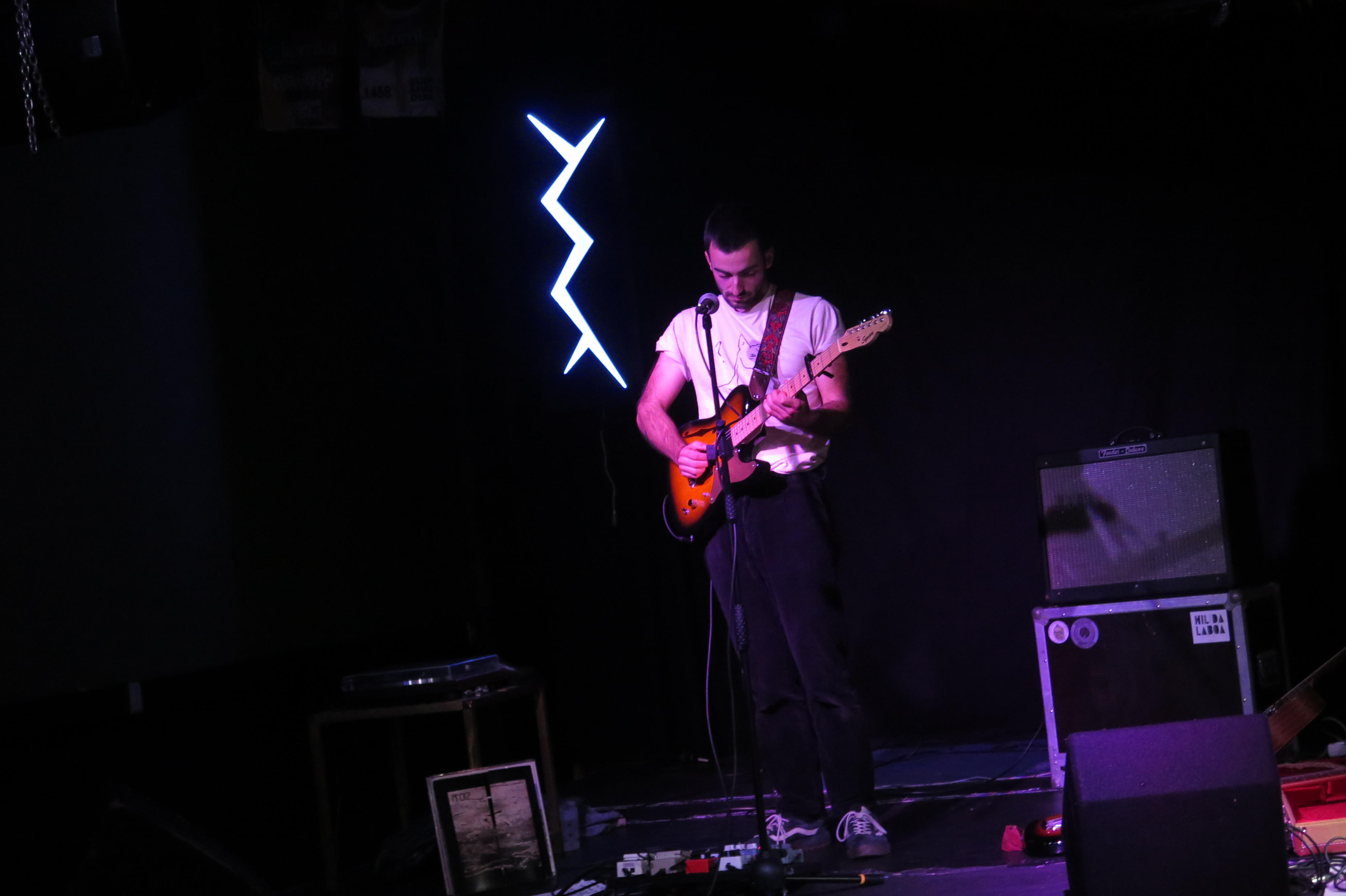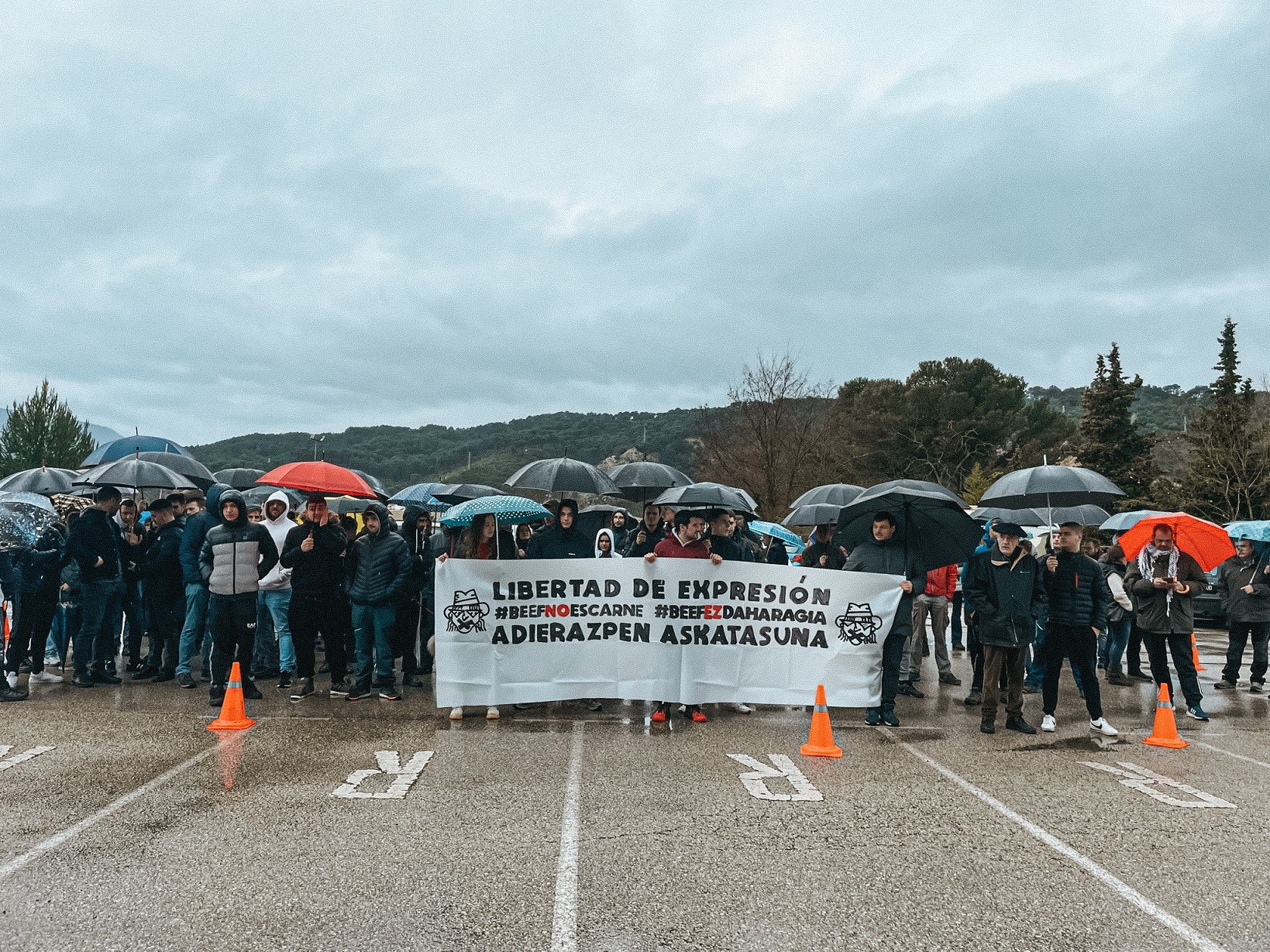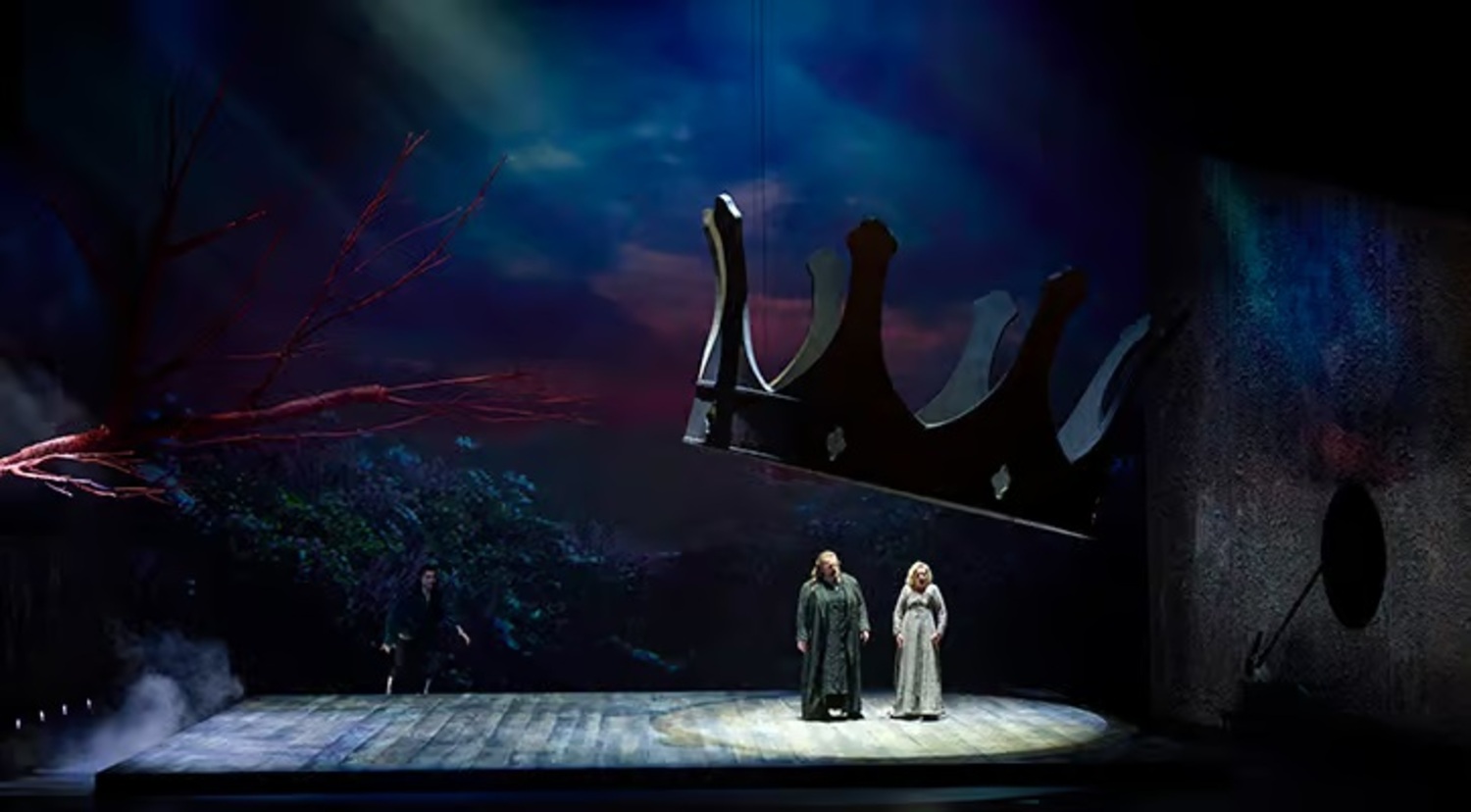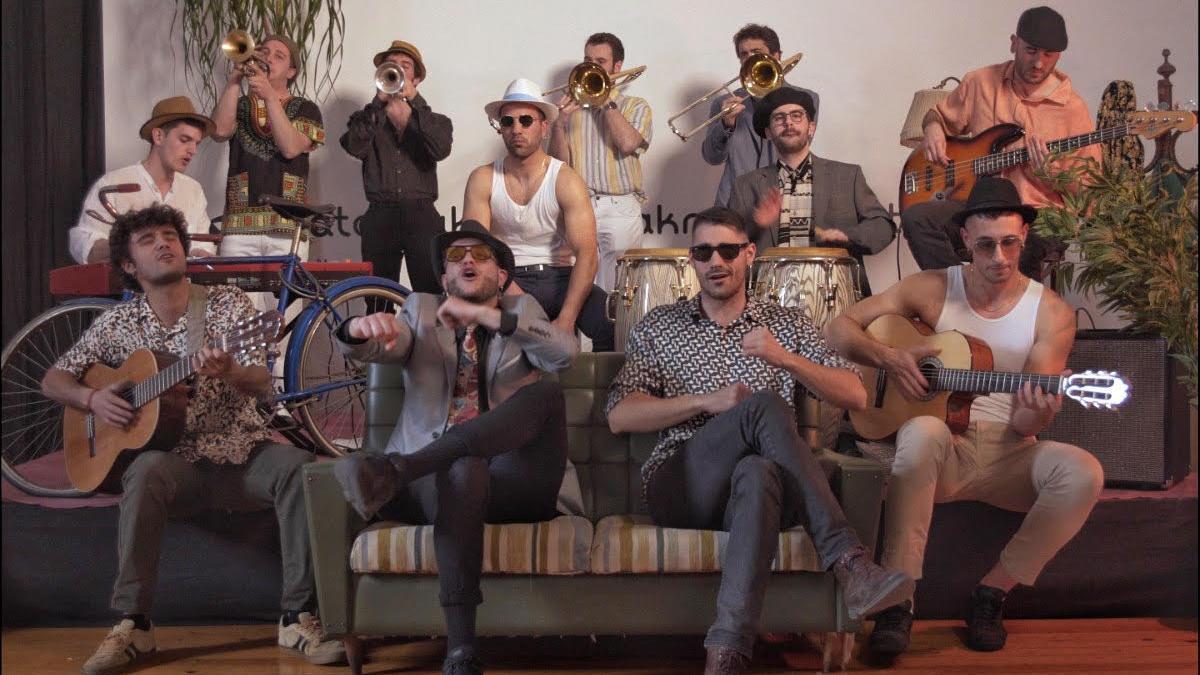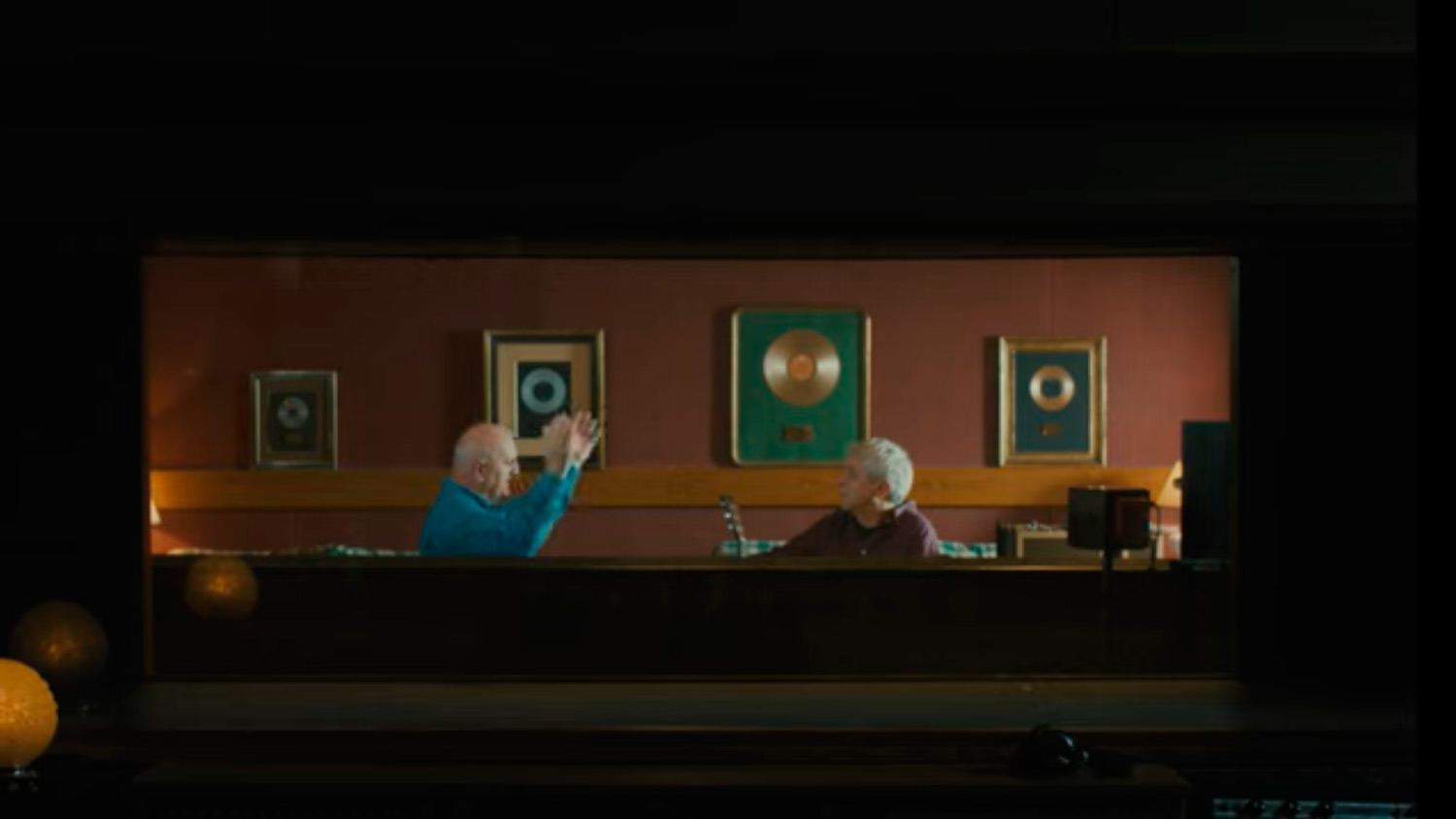"In order to do something new it was essential to end Vendetta"
- It has passion and musical work. The aim is to put an end to the Vendetta group and to set in motion an endless number of projects. Meanwhile, the ‘Euskalonski’ will continue to make known at ETB1 and will propose to children to reflect on human values with the songs of their new album Balioak. Unstoppable.
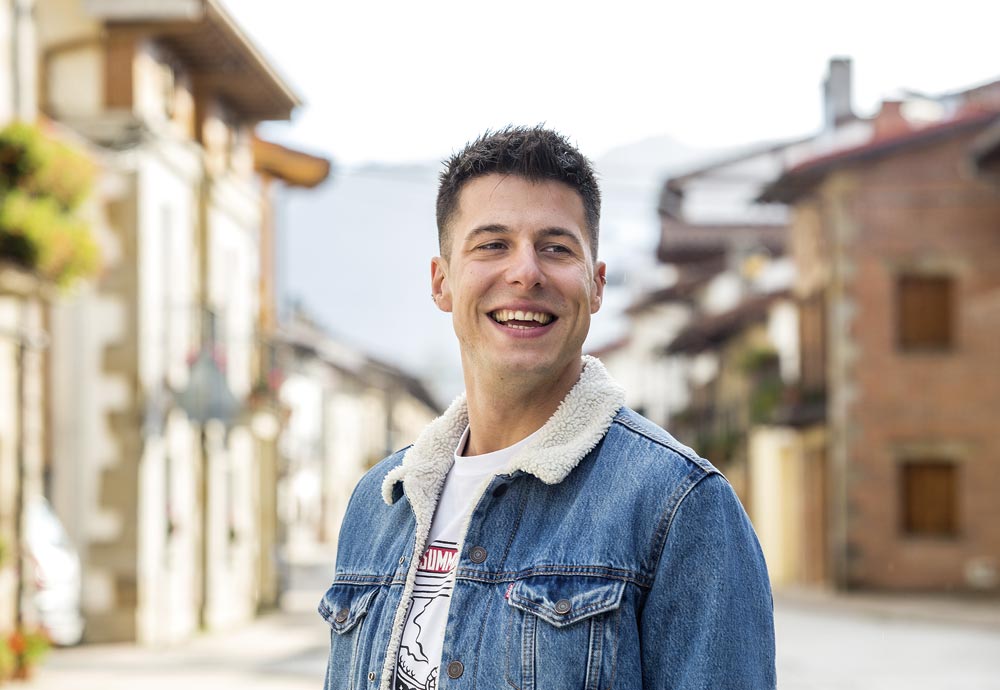
Musikari, konpositore eta ekoizlea. 17 urterekin Vendetta taldea sortu zuen. Taldeari agur esanen diote abenduaren 28an, Iruñerrian. Irakasle ikasketak egin zituen NUPen. Berriozarko musika eskolan irakasle izan da, baita Etxarriko eskola publikoan ere. Haurrentzako Baloreak proiektua abiarazten ari da. ETBn Euskalonski saioa aurkezten du, munduan zehar bizi diren euskaldunak bisitatuz. Bitartean, Londresen, abestiak egiten ikasteko bi urteko masterra egiten ari da.
Ten years later, on December 28, in the antechamber of the Hatortxu festival, you will talk about ‘Agur Vendetta’. What do you feel?
The illusion and at the same time the melancholy, the pity… I wouldn’t say it, because on this last tour we are feeling deeply the affection and warmth of the people and because our relationship is, as always, very good. I have those two feelings.
Why do I dismiss you, then?
From my point of view, I would say that we are keen to do other things. Last year I went to London to do a master's degree and this has made me change the way I see things. It's been ten years since we created Vendetta. I have changed a lot and I feel the need to change. A great project like Vendetta absorbs you all. Two projects of this measure cannot be carried forward simultaneously. In order to do something new, I think it was essential to end Vendetta.
Is it best to end when you're up?
That's right. And I think that's pretty. Vendetta is very well located. We have given a lot of concerts in Euskal Herria and also outside, but getting out of that comfort zone is important for the artist. Start from scratch and ask what you want to do, what you do, it's very necessary. It may be exhausting, but I regard it as indispensable.
How do you look like in two years?
I'm sure on the board. Now, until Vendetta ends up forming something else, I'm going to spend a few months off the stage and I'm almost feeling the need to do it. I don't see myself alone. I think I'm still not very clear who I am, because I'm changing a lot. Maybe I can spend my whole life like this ... I imagine in another group, other sounds, other instrumentation... but for the moment, at least not just me.
And how about the master's degree you're taking in London?
It's terrible. I'm surprised. I realize that I did a lot of inertia in writing songs, structuring them or informing them. I am not changing, in any case, what to do, but I am changing how to convey it. The master's degree has been a real revolution within me.
Are you staying in London?
When you finish the master's degree, I intend to return to the Basque Country. I'd like to keep traveling a lot, but I feel like my place is here. I live at ease in Arbizu and I really like to create music from this point of view.
You have just presented the children’s project ‘Balioak’. What exactly is it?
DeepSoda is the first production cooperative project we've launched recently. The sound technician Paxkal Etxepare, the music manager Joseba Razquin and the three of us are working, and like Joseba and I are teachers, we wanted to create a project that links music to teaching. I have always had a great allergy to human values because I felt they had a religious touch and thought: Why not reclaim them and work them from the children's perspective? It is a contribution of hope and a desire to transform things.
What values are these?
They are the ones who have come out after talking to children for a long time: continuity, love, responsibility, humility, courage, personality, equality and
solidaridad.Hemos made a lot of debates and has been a very interesting process of creation. I wanted to contrast the words with the feminist collective Eraikiz, with SOS Racism and with the Chrysallis association. They review the letters, they make valuable contributions. I can consider myself a feminist, for example, but I don't realize many things, because I have a lot to undo. That is why I have chosen to have small discussions.

After presenting the album in Durango, what?
We're creating educational material. We do not want it to be a simple album and we may see it on the stage, but at the moment we have not talked about it. It may well be in the future, but at the moment it is not the objective. The protagonists are children and have other priorities.
You obviously get along with the kids.
I'm a teacher and I really enjoy teaching. My passions are children and dogs, I don't put them in the same bag, but I really enjoy the two.
On the stage you also enjoy.
It is an experience of Christ. Music is for me the most potent drug and I do not intend to detoxify myself.
The number of followers he has, especially among teenagers, is impressive. Over 14,000 on Instagram account and 19,000 on Vendet account, for example. How do you bring the Fan phenomenon?
OK. I live in Arbizu, our Basque Country is a small town of small nation and in that context the fan phenomenon is not at all like in other places. We're public characters, but locally, and that's why it's much more portable, no doubt.
In the television program Euskalonski, you do the interviews. Is journalism your new aspect?
I do not consider myself a journalist at all. I got on TV and I'm living a nice experience. I've always loved traveling, meeting people -- and the music world has offered me that. Now, the program, otherwise, gives me the opportunity to enjoy music, travel and Euskera at once. It's interesting people and they have amazing stories, so it's making it really easy for me. In addition, there's a big team behind it. In addition to all the people who do a great job in the office, for example, the program director, Lander Garro, didn't know so far. It has been a great surprise to meet a person who can lead a project of this magnitude so well and learn so much with it.
Besides being very diplomatic, what does Pello look like?
My strength and, at the same time, my biggest weakness, is the same thing: music and work. In the end, music is my job, and I'm obsessed with work. That absorbs me a lot of my social life, takes away time and sleep to be with my family. I believe that in the last two or three years I have taken him to the extreme and I have the feeling that he has escaped my hand. The truth is that I always think that in two or three months' time I will be quieter, but I am still in many projects. I don't know how to say no. Music is my life, my passion. I'm living experiences that I'll never forget, but at the same time they condemn me to a state of infinite stress. I live in the production studio in Arbizu, and when I don't travel, I'm there from morning to night, mostly immersed in creation.
You move politically and ideologically in your songs. Are there ever more obstacles to freedom of expression?
We are seeing in recent times that it is more difficult to manage all that. It is true that in Euskal Herria we have always suffered pressure and censorship: SA Fermin Muguruza, Berri Txarrak… I have never hidden my ideas and I have participated in all the issues I saw relevant, such as the creation of the song of the parents of Altsasu, and I have not thought about changing my attitude. The artist should do what goes inside and participating in it has been fundamental to me. The truth is, I'm not afraid. Feeling uncomfortable is a function of art. Art is a transformative art and art always reflects in one way or another the context created.

What three songs would you highlight and why?
Some songs acquire special meanings. For example, the people who fly in Reggae have turned it into a hymn of our greeting. The repetition says “goodbye” and is being very special at concerts. The song has another meaning and is very nice and enriching. The song itself was created together with a feeling. After a few months of absence, I went back to the village and walked, and I saw an eagle in a wooden stick. Shortly afterwards, San Donato flew to Beriain and that image seemed terrible to me. It was the image of freedom. I wrote that same day.
The song I made at the age of 19, Begitara begira, over time has taken a different size. When I wrote I described a feeling that we have experienced in Arbizu and throughout Navarre: the feeling of contempt that we Basques have had. Especially at the time when UPN was in power. The influence he has had in Euskal Herria has been enormous.
And another song, to emphasize, is the long summer night. It's a love song, it has enough political and social content, but when it came out, it was very controversial. From the point of view of some it was very “popero”. It is true that it showed a small part of the sensitivity, something we had not previously taught with Vendetta, and that's why we received a lot of lashes. That moment was traumatic for me. Despite the success of the song, I didn't understand what had been created. I thought maybe I was doing something wrong. I had a good paranon, and I had a lot of laps in my head. Why not sing love? Over the years, I've seen that it's been one of Vendetta's most famous songs, and I've learned to be myself.
Do you have to accept the change to the creator, right?
Change is essential and more in the art world. Many times we have been told that we are changing with a negative connotation and I have said that change is always good. I am very proud of all the changes that Vendetta has undergone and, furthermore, he has always emphasised the welcome that the public has had.
You've written more and more songs on Vendetta, and you've been singing more and more in Basque.
I've had a lot of songs written in Euskera. In the case of Vendetta, I see clearly that the Basque country has opened some doors to us. Besides being more related to our nature, I think Euskera can be a tool to understand life and music in a different way and that's why I want to go. I imagine my next project in Euskera.
Can it be a limit when it comes to leaving?
I don't know, I'm not sure. Berri Txarrak has broken all boundaries, but the road has not been easy. It's given them a lot of things, but it can also be hard.
19 urteko mutil arbizuarrak “Begitara begira esaguzue hizkuntza hau ez dela geurea, herri faltsu bat izan dugula maite, lekuz kanpo gaudela” esaten zien ozenki Nafarroaren euskal nortasuna ukatzen dietenei. Gerora pentsarazi zigun, “Zer ginen ta zer garen. Ez ahaztu gogorrenak ginela” eta kaleak berreskuratzera deitu zigun Bother the police kantarekin: “Herri honetan zer ari zara? Bueltako bideak ahaztu ala? Eta molestatzen, molestatzen goaz jarraitzera eta zure bueltako bidean elkarrekin aurkitzera”. Baina bihotza beste modu askotara ere hunkitu digu, Joseba Ezkurdia pilotaria eta bere lagun minari egindako kantarekin, adibidez: “Hemen gaittuzu betiko. Hemen gaittuzu eztarrietatik eskutara…” eta maitasunaz eta borrokaz amets egitera eraman gaitu udarako gau luzeetan: “Ta zure eskutik kilometroak egin. Herriaren begietan ospatzerik ikusi. Gose direnen izenean Batikanoa erortzen ikusi”, eta arrano bat bezain aske sentitzeko desioa piztu digu: “Agur urruneko. Agur bihotzeko. Otsoen antzera, aldera, uzkurtu gabe, koldartu gabe, amildegi hartan pausatu den arranoa hegan hastera doa! Ta nik igo nahi nuke magalean ta zeruan bizi, zeruan hezi geroa”.
Ultra
La Furia
Baga Biga, 2024
---------------------------------------------------------
Cascanteko La Furia-k bosgarren diskoa plazara atera du. Mimoz eta erraietatik, berarentzat funtsezkoak diren osagai horiekin, prestatu du honako pozima, pozoitsua eta aldi berean... [+]
EMEADEDEI + MAHL KOBAT
WHEN: February 2nd.
IN WHICH: In the youth center of Zuia, Murguía.
----------------------------------------------------
On September 20 of last year, we first heard about collective music in the profile of the social network they had just created:... [+]
Opera 'Tristan und Isolde'
Bilbao Symphony Orchestra. Directed by: Assisted by Erik Nielsen.
The Bilbao Opera Choir. Directed by: Assisted by Boris Dujin.
The stage director: To the Allex Eagle.
The soloists: I'm talking about R. Assisted by Nicholls, G. By Hughes Jones, M. The... [+]
Party and recreation. Oral History of Rock Radical Vasco
Javier 'Jerry' Corral
Books, 2025
------------------------------------------------
Javier Corral ‘Jerry’ was a student of the first Journalism Promotion of the UPV, along with many other well-known names who have... [+]
All
WHEN: January 18th.
IN WHICH: Jimmy Jazz of Vitoria-Gasteiz.
----------------------------------------------
I have a question in my mind lately: how much do things change in 30 years? Yes, reader, you guessed it: I’ve just turned three decades old. It will be a... [+]
Itoiz, udako sesioak filma estreinatu dute zinema aretoetan. Juan Carlos Perez taldekidearen hitz eta doinuak biltzen ditu Larraitz Zuazo, Zuri Goikoetxea eta Ainhoa Andrakaren filmak. Haiekin mintzatu gara Metropoli Foralean.
Sawdust
Olaia Inziarte
Panda, 2024
-------------------------------------------
Fourteen songs written during the Depression. Olaia Inziarte presented it in the first late night in Basque that can’t be mentioned now. The bru-ta-la piece Sawdust opens the disc. A jazz... [+]
Nafarroa Arenan Mitoaroa ikusten izandako lagun batek “telurikotzat” jo zuen entzun-ikusi-sentitutakoa. Niri ere hala iruditu zitzaidan telebista medio etxetik hauteman nuena.
Pentsa daiteke Mitoaroak piztutako grinak eta atxikimenduak proiektuaren ikusgarritasuna... [+]
Since Benito Lertxundi, who told us that he will leave the scenes for ever, we have been there for several weeks, and since then many of us have felt orphans in one way or another, with a sense of loss or abandonment, sad. To Iruindarro, at least, we will remain forever honored... [+]









